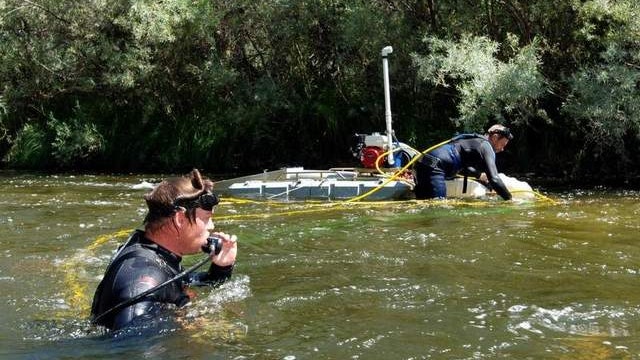Debate on Calif. Suction Dredge Mining Hitting Courts
California state courts to rule on new environmental regulations on Suction Dredge Mining
FRESNO, Calif. – A legal battle is brewing over whether California gold miners should be allowed to vacuum up the bottoms of rivers.
The controversy is about a process called suction dredge mining, a practice popularized on the Discovery Channel show "Bering Sea Gold" but banned for the last four years in California, as state courts continue to weigh new environmental regulations.
"Suction dredging is the best way to extract gold from the environment," said Craig Lindsay, a former dredger and president of the Western Mining Alliance, an advocacy group working to protect mining rights in Western States.
Suction dredge mining is a process in which prospectors look for gold by diving underwater using a 4-inch wide hose to vacuum dirt and gravel to find gold.
"What we've done in our own way is take that ethic of hard work and individualism and trying to make a living by using our skills just like the '49ers did," Lindsay said.
But the current ban forces the more than 3,000 California dredge permit holders to use other methods to get the precious metal. And Lindsay believes this ban is unfair.
"It's efficient, it allows people to earn a living, feed their families and does minimal amounts of damage to the environment in addition to removing all of the toxins from the environment, like lead and mercury," Lindsay said.
But opponents view suction dredge mining as a harmful form of technology that will affect clean water to endangered species and mercury dispersal.
"Suction dredge machines suck up that mercury and blow it up into tiny pieces, and those pieces are much more toxic, much more available to be absorbed into the bodies of fish and insects. And when human beings eat fish contaminated with mercury, it's absolutely toxic," said Elizabeth Martin, CEO of the Sierra Fund, a community foundation for the Sierra.
Environmental organizations like the Sierra Fund say miners a hundred years ago used mercury in the form of quicksilver and left it behind in the water, and the dredge machines stir it back up in the water when they vacuum the river bottoms. The California State Water Board came out with a report detailing how suction dredging can affect water quality.
"There was really no question the science is settled. The suction dredge machines create a terrible toxic nightmare in our water," Martin said.
The Department of Fish and Wildlife acknowledges that suction dredge mining affects the environment, and the agency has been asked to offer recommendations on how it can impose a more comprehensive regulatory scheme. But department Director Chuck Bonham says the agency has limitations.
"We don't have the authority to regulate all the impacts to the environment that we've identified," Bonham said. "We're managing a pretty complex litigation caseload in San Bernadino County, which is the consolidation of lawsuits against us by the Karuk Tribe, environmental organizations, as well as an association of miners on the recreational and commercial side."
The recommendations offered by the agency might affect the outcome of extending the ban or getting miners back in action.










































